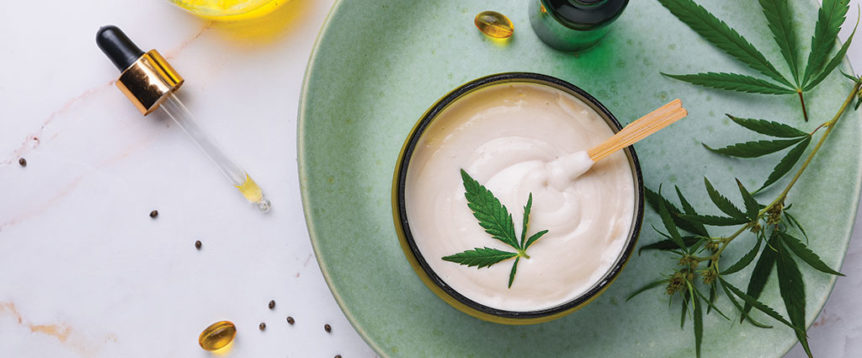The Live Naturally CBD Series | Part Two
Answering your questions about CBD one step at a time
Is CBD legal? That’s a good question. Technically, hemp-derived CBD (also known as cannabidiol) is legal in all 50 states. But, this does not mean all CBD is legal. It is important to distinguish between hemp-derived CBD and CBD derived from marijuana or other plants in the cannabis family.
In December 2018, the Farm Bill made hemp a legal crop by removing hemp and hemp seeds from the Drug Enforcement Administration’s schedule of Controlled Substances (the banned substance list). In doing so, hemp and hemp-derived products, including fabrics and textiles, personal care and hemp-derived CBD products are now technically legal in all 50 states.
There are many gray areas that remain around selling hemp-derived products.
Although the Farm Bill made hemp legal, the Food and Drug Administration (FDA) still maintains the authority to regulate how hemp-derived products, including those containing CBD, are sold as a food or supplement. The delay in clarifying how hemp-derived products can be sold stems from the fact the FDA had already approved CBD for use in the prescription drug Epidiolex, a pharmaceutical-grade CBD product in the form of CBD isolate that is used to treat a rare type of epilepsy. The FDA’s Drug Exclusion Rule stipulates that if an ingredient has been approved as a drug, it cannot be used in food or dietary supplements and subsequently marketed as having health benefits. That is, unless those products were already being marketed as such before the drug was approved.
In the absence of a formal FDA ruling on hemp-derived food and supplements, experts have strongly suggested that companies not make any “over-the-line claims” about products such as any type of disease treatment assertion like the kind you will see on pharmaceutical drugs.
This is important, as even though the FDA has not issued a ruling, it has sent out warning letters to companies making drug-like claims in relation to CBD products. For this reason, although CBD capsules, oils and tinctures are not technically dietary supplements, they are being treated as such and tend to stick to the type of nutrient content and structure/function claims allowed for dietary supplements by the Dietary Supplement Health and Education Act (DSHEA).
Because of the ambiguity around selling hemp-derived food and supplement products, many retailers like Kroger currently are only selling topical products—lotions, creams, salves, balms and sprays.
These products are considered to be cosmetics, “articles intended to be rubbed, poured, sprinkled or sprayed on…or otherwise applied to the human body…for cleansing, beautifying, promoting attractiveness, or altering appearance.” These products are not sold as drugs. And, although they fall under the scrutiny of the FDA, they do not need to attain pre-market approval. Instead, the FDA relies on consumer complaints to monitor cosmetic products. Still these products are not completely immune from scrutiny. The FDA has sent warning letters to cosmetic companies who they deem have crossed the line marketing cosmetic products containing CBD as drugs.
To add to the gray area, some states have made their own laws in regard to both CBD and marijuana products. Some have made CBD-explicit medical laws and several states, including Idaho, South Dakota and Iowa, have made all cannabis products, including medical CBD, illegal. It’s important that you are familiar with the laws surrounding CBD by state before you choose to use it or travel with it.
| < previous | next > |




